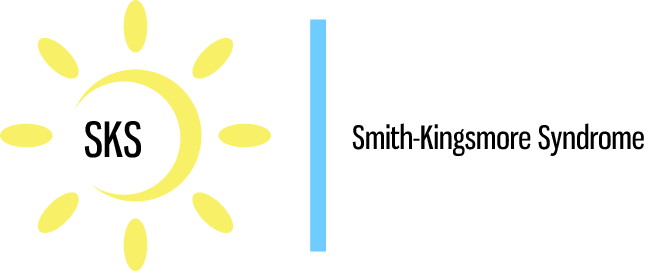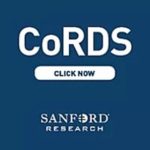JOIN THE GLOBAL PATIENT REGISTRY FOR SMITH-KINGSMORE SYNDROME
Help us bring patients, families, and researchers together to gain a better understanding of Smith-Kingsmore syndrome.
If you or a family member has been diagnosed anywhere in the world with Smith-Kingsmore syndrome, please enroll. You can make an important contribution to SKS research by enrolling in the patient registry. This registry database will enable a systematic collection and analysis of information from individuals with SKS. You can help advance understanding of the condition.
In addition, we are excited to be able to provide you quarterly updates based on data from the patient registries. To include your data in these updates, please check the consent to Smith-Kingsmore Syndrome Foundation. This will allow us to share de-identified data with all families and let us know how individuals with SKS need more support. For example, we will be able to share how many individuals with SKS have seizures, how many are on Sirolimus, etc.
We are partnering with Sanford CoRDS to create the registry. Sanford CoRDS supports and enables rare disease communities to build robust registries. This SKS registry will provide researchers with the information they need to drive research forward.
Please click the blue CoRDS box below to enroll.
Enrollment Instructions - Let's Get Started!
To enroll and complete the CoRDS Patient Registry Questionnaire online, follow the steps below or click the link to watch video instructions: https://youtu.be/9lWVVgDtqOk.
The registry works best with updated versions of Google Chrome, Mozilla Firefox or Microsoft Edge and may not work as well with a phone or tablet. In addition, you may also complete registration on paper by calling CoRDS at + 1 877 658 9192 or sending an email to cords@sanfordhealth.org.
Activation Form
Complete the CoRDS screening form. Please use a desktop/laptop computer or tablet. *NOTE-When completing the screening form, it is very important to enter a diagnosis of “Smith-Kingsmore Syndrome”. The Orphanet label “Macrocephaly-Intellectual disability-neurodevelopmental disorder-small thorax syndrome (Smith-Kingsmore syndrome)” will pull up. This is the same as Smith-Kingsmore syndrome. Additionally these diagnoses will also map to our SKS Patient Registry: “Macrocephaly-Intellectual disability-neurodevelopmental disorder-small thorax syndrome (SKS)”, and “Macrocephaly-Intellectual disability-neurodevelopmental disorder-small thorax syndrome (mTORapathy)”. After you submit, you will then be directed to the Login Setup screen.
Login Setup
The system will generate a username for you based on your name. You will need to create a password and setup a security question. Once completed, click the LOGIN button to login to your CoRDS PATIENT REGISTRY PROFILE.
The questionnaire will take about 45 minutes. In the Patient Registry Profile, click the CONTINUE ENROLLMENT button near the top of the screen. Click on the SAVE & NEXT button in the upper right-hand corner of the screen to proceed to the next set of questions.
Once you have answered all the questions, click SUBMIT and you’ve completed the questionnaire! Remember, you can always log in to update your answers at any time. You should plan to update your questionnaire at least once every year and after any significant changes to medical history.
Thank you for taking the time to complete the questionnaire and for making an important contribution to Smith-Kingsmore Syndrome Research!
Patient Registry Highlights
- Each participant is assigned a Global Unique Identifier that enables de-identification of the data when shared with approved researchers to protect your privacy. This means that your name and other identifying information will not be passed.
- Additionally, the de-identified data will be shared only with researchers approved by Sanford’s Scientific Advisory Board (SAB) and Smith-Kingsmore Syndrome Foundation.
- Importantly, you own your personal data and can withdraw the data from the registry at any time.
- And there is no cost to you.
- Providing your consent to Smith-Kingsmore Syndrome Foundation to access the data you provide will allow us to share de-identified data with all families and let us know what support individuals with SKS need.
Benjamin Forred, Project Manager of Translational Research at Sanford Health, and Alyssa Mendel, Senior Clinical Research Specialist, discuss the importance of patient registries to accelerate research into rare disease.
Frequently Asked Questions
Still have questions about the patient registry? Click on the questions below to reveal answers to frequently asked questions.
A registry is a program for collection, storage, retrieval, and dissemination of clearly defined information for a specific purpose. Data collected in this registry includes diagnosis and treatment, management of care, quality of life and longitudinal information over time for Smith-Kingsmore syndrome.
In one word, PROGRESS. Having a registry specifically for individuals with Smith-Kingsmore syndrome allows approved researchers to have easy access to useful medical data on many individuals with SKS. Researchers will be able to compare your answers with those of others. They will be able to detect patterns, identify common symptoms and gain insights into effective and non-effective treatments. The data will provide a better overall understanding of SKS and how it develops and progresses over the course of a lifetime.
Sanford CoRDS’ goal is to collect and provide a valuable resource of information and to accelerate patient recruitment into research studies and clinical trials.
Data from the registry can help to:
- Drive research towards better treatments and possibly a cure
- Allow healthcare professionals and researchers to learn more about the disease
- Create a strong patient and research community
- Enhance treatment guidelines for patients to improve quality and management of care
Everyone with Smith-Kingsmore syndrome! Participating in the registry at CoRDS is a great way for participants to take part in helping to identify the specific causes, symptoms, and treatments of Smith-Kingsmore syndrome.
Sanford CoRDS has put many safeguards into place to protect your information and ensure that researchers can use it.
Institutional Review Board (IRB)
CoRDS submits every questionnaire to their Institutional Review Board (IRB) for approval. The IRB is a group that reviews the ethics of medical research studies.
HIPAA and GDPR
In addition, this registry complies with the U.S. Health Insurance Portability and Accountability Act (HIPAA) and the European Union General Data Protection Regulation (GDPR).
Informed Consent
Your information is safeguarded by informed consent. As part of the enrollment process, you will be able to read about the registry and then sign a form that indicates you understand what you are doing. For any questions regarding this process, participants can call CoRDS at + 1 877 658 9192 or send an email cords@sanfordhealth.org.
Privacy Protected
Your privacy is protected. All information that you share will be de-identified, meaning your name will not be shared. Instead, your information is assigned a computer-generated ID number. CoRDS keeps your identifiable information in one database and your de-identified questionnaire responses in a separate database. So if researchers receive approval from CoRDS IRB to look at the SKS registry, they will only be given the de-identified information.
Additionally, a researcher might contact CoRDS to ask for information from all participants who have specific symptoms, such as seizures. Sanford CoRDS would then contact every participant with seizures who also said they would like to participate in additional studies. CoRDS would provide these people with the researcher’s contact information. After that, it would be up to the individual participants to contact the researcher to participate in the additional research. CoRDS will never provide your contact information to anyone.
Yes, you can access the registry all over the world with the link provided on our website. International participation is highly encouraged.
You can make updates at any time and they should only take 10-15 minutes. But you should make updates at least once every year, after any significant change in the participant’s health, and immediately after their 18th birthday. If you enrolled the participant in the registry as a minor, their data becomes inaccessible 30 days after their 18th birthday unless and until they are re-enrolled.

